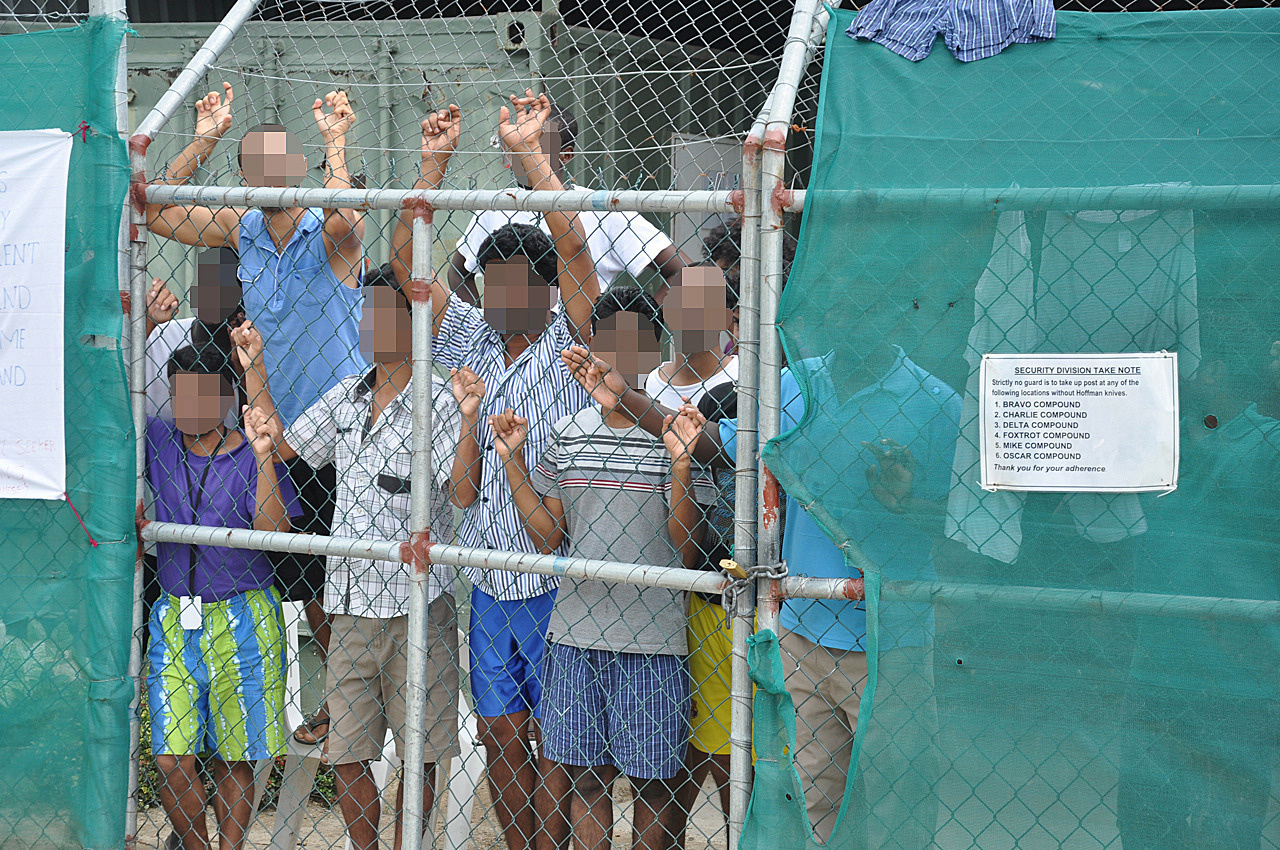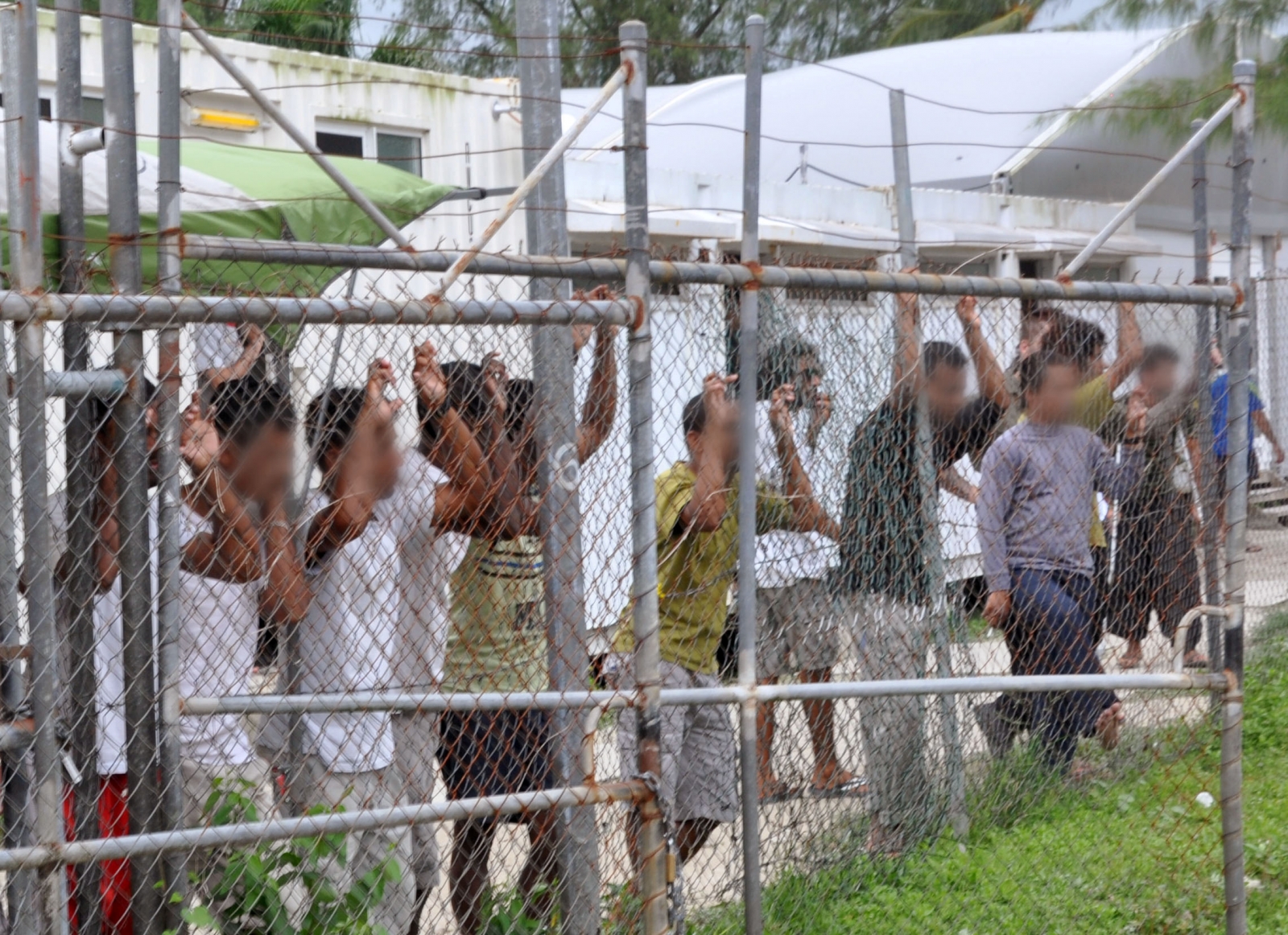Manus Island refugees refuse to leave as Papua New Guinea closes Australian detention centre
Detainees say the closure violates their human rights as it leaves them without water, food or electricity.
Refugees on Manus Island have barricaded themselves inside the detention centre after a Papua New Guinea court ordered that the camp be closed on Tuesday (31 October).
Detainees chanted "don't come out" as they formed a human chain inside the camp, protesting against its closure. One man was captured on video saying that he wanted to "die in this place. We do not want to leave."
Asylum seekers arriving in Australia have been detained on Manus Island and the small Pacific nation of Nauru for the past decade. Australia refuses to take in any refugees who try to reach its territories unofficially by boat - a controversial policy that has been criticised by human rights groups.
In April, Papua New Guinea's Supreme Court ruled that the detention of asylum seekers on Manus Island was unconstitutional and ordered the centre to be closed on 31 October.
Papua New Guinea has said that it is Australia's responsibility to take in the refugees, but Canberra says the Pacific state is responsible for them.
Around 600 men have been ordered to leave the camp, but many are refusing to as they argue that the closure will violate their human rights.
Detainees have launched legal action against the closure, claiming that it is "unconstitutional" and that the removal of basic services, such as electricity and water, breaches their rights.
Australian lawyer Greg Barns told The Guardian that they are fighting to ensure that the asylum seekers "have basic amenities and necessities of life – water, food, electricity, etc."
"Orders also being sought to ensure they are not forcibly sent to the new transit centre and that we want to ensure the PNG government facilitates them going to Australia or to a safe third country," he said.
Asylum seekers said that water supplies were cut off on Sunday (29 October) and that there will be no electricity or food from Tuesday.
Kurdish journalist and human rights defender Behrouz Boochani, who is detained on Manus Island, said that he and his fellow asylum seekers have no intention of violence.
"Navy and police [are] heavily armed, but we don't know who they want to go to war with, locals or refugees. So scary," he tweeted.
Navy and police heavily armed, but we don't know who they want to go to war with, locals or refugees. So scary.
— Behrouz Boochani (@BehrouzBoochani) October 31, 2017
Last week, Human Rights Watch warned that asylum seekers risked suffering "unchecked violence" at the hands of local people following the closure.
"(They) have suffered repeated violent attacks and robberies by locals, with inadequate hospital care on the island and no action by police," the group said.









